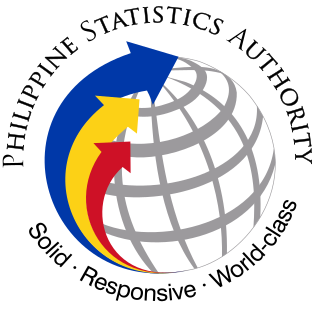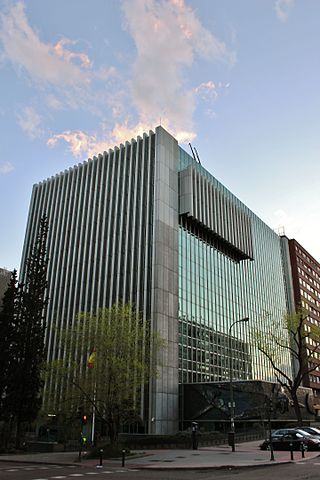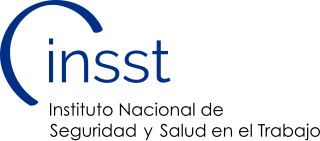Evaluation is a systematic determination and assessment of a subject's merit, worth and significance, using criteria governed by a set of standards. It can assist an organization, program, design, project or any other intervention or initiative to assess any aim, realisable concept/proposal, or any alternative, to help in decision-making; or to ascertain the degree of achievement or value in regard to the aim and objectives and results of any such action that has been completed. The primary purpose of evaluation, in addition to gaining insight into prior or existing initiatives, is to enable reflection and assist in the identification of future change. Evaluation is often used to characterize and appraise subjects of interest in a wide range of human enterprises, including the arts, criminal justice, foundations, non-profit organizations, government, health care, and other human services. It is long term and done at the end of a period of time.
Governance is the process of interactions through the laws, social norms, power or language as structured in communication of an organized society over a social system. It is done by the government of a state, by a market, or by a network. It is the process of choosing the right course among the actors involved in a collective problem that leads to the creation, reinforcement, or reproduction of acceptable conduct and social order". In lay terms, it could be described as the political processes that exist in and between formal institutions.
A best practice is a method or technique that has been generally accepted as superior to other known alternatives because it often produces results that are superior to those achieved by other means or because it has become a standard way of doing things, e.g., a standard way of complying with legal or ethical requirements.
New Public Management (NPM) is an approach to running public service organizations that is used in government and public service institutions and agencies, at both sub-national and national levels. The term was first introduced by academics in the UK and Australia to describe approaches that were developed during the 1980s as part of an effort to make the public service more "businesslike" and to improve its efficiency by using private sector management models.

The Philippine Statistics Authority, abbreviated as PSA, is the central statistical authority of the Philippine government that collects, compiles, analyzes and publishes statistical information on economic, social, demographic, political affairs and general affairs of the people of the Philippines and enforces the civil registration functions in the country.
The Deutsche Gesellschaft für Internationale Zusammenarbeit (GIZ) GmbH, often simply shortened to GIZ, is the main German development agency. It is headquartered in Bonn and Eschborn and provides services in the field of international development cooperation and international education work. The organization's self-declared goal is to deliver effective solutions that offer people better prospects and sustainably improve their living conditions.
The Governance and Anti-Corruption Country Diagnostics is a survey tool, which uses information gathered from in-depth, country-specific surveys of households, businesses, and public officials about institutional vulnerabilities. The tool is used by the World Bank and partner governments to measure and evaluate critical governance challenges within the public sector.
Governance is a broader concept than government and also includes the roles played by the community sector and the private sector in managing and planning countries, regions and cities. Collaborative governance involves the government, community and private sectors communicating with each other and working together to achieve more than any one sector could achieve on its own. Ansell and Gash (2008) have explored the conditions required for effective collaborative governance. They say "The ultimate goal is to develop a contingency approach of collaboration that can highlight conditions under which collaborative governance will be more or less effective as an approach to policy making and public management" Collaborative governance covers both the informal and formal relationships in problem solving and decision-making. Conventional government policy processes can be embedded in wider policy processes by facilitating collaboration between the public, private and community sectors. Collaborative Governance requires three things, namely: support; leadership; and a forum. The support identifies the policy problem to be fixed. The leadership gathers the sectors into a forum. Then, the members of the forum collaborate to develop policies, solutions and answers.

The Ministry of Transport, Mobility and Urban Agenda (MITMA), traditionally known as the Ministry of Development (MFOM), is the department of the Government of Spain responsible for preparing and implementing the government policy on land, air and maritime transport infrastructure and the control, planning and regulation of the transport services on this areas. It is also responsible for guaranteeing access to housing; urban, soil and architecture policies; planning and controlling the postal and telegraph services, directing the services related to astronomy, geodesy, geophysics and mapping, and planning and programing the government investments on infrastructure and services related to this scope. The Ministry's headquarters are in the New Ministries government complex.

KERIS is a governmental organization under the South Korean Ministry of Education, Science and Technology that develops, proposes, and advises on current and future government policies and initiatives regarding education in South Korea.
The Ministry of Economy, Planning and Development of the Dominican Republic is a ministry created in 2006 through Law No. 496-06 of that year, which exerts ongoing coordination of the Economic Team and the Cabinet Economic Sector of the Dominican Government. It's considered one of the strategic ministries and his minister, a high executive government.

Corruption in Azerbaijan is considered high and occurs at all levels of government. In Transparency International's 2021 Corruption Perceptions Index, which ranked 180 countries from those perceived to be least corrupt to those perceived to be very corrupt, Azerbaijan was ranked 128, compared to 45 for Georgia and 58 for Armenia. In the Azerbaijani laundromat money-laundering scheme, $2.9 billion was paid to foreign politicians and Azerbaijani elites by companies linked to Azerbaijani ruler Ilham Aliyev, government ministries, and the International Bank of Azerbaijan between 2012 and 2014. Azerbaijan is a member of Group of States Against Corruption (GRECO) and OECD's Anti-Corruption Network.

The Ministry of Finance or Ministry of Treasury (MH) is the department of the Government of Spain responsible for planning and carrying out the government policy on public finance and budget. It applies and manages the regional and local financing systems and the provision of information on the economic-financial activity of the different Public Administrations.

The Spanish Tax Administration Agency, commonly known as Agencia Tributaria, is the revenue service of the Kingdom of Spain. The agency is responsible for the effective application of the national tax and customs systems and for those resources of other Public Administrations and the European Union whose management is entrusted to it by law or agreement.

The National Agency for Quality Assessment and Accreditation is the authorised agency of the Spanish government whose aim is to provide external quality assurance for the Spanish higher education system and to contribute to its constant improvement through evaluation, certification and accreditation.

The Secretary of State for Tourism (SETUR) is a high-ranking official of the Ministry of Industry, Trade and Tourism of the Government of Spain.

In the year 2000, Rwanda began a decentralization process by adopting a National Decentralization Policy. The policy's objective were to promote good governance, to reduce poverty and to promote efficient, effective, and accountable service delivery.

The Ministry of Universities is a ministerial department in the Government of Spain responsible for proposing and carrying out the government policy on universities as well as representing Spain in the European Union and other international organizations regarding universities.

The National Institute for Safety and Health at Work is an autonomous agency of the Government of Spain. The INSST is considered a technical-scientific agency entrusted with the task of analyze and research on safety and health conditions at work, as well of promoting and supporting the improvement of them, in order to achieve a decrease in occupational hazards, work accidents and occupational diseases.
The Agencia Espacial Española is a planned space agency of Spain's Public Administration that will be in charge of the Spanish space program. The agency was officially announced on 27 May 2021 and is expected to be operational in 2023.










